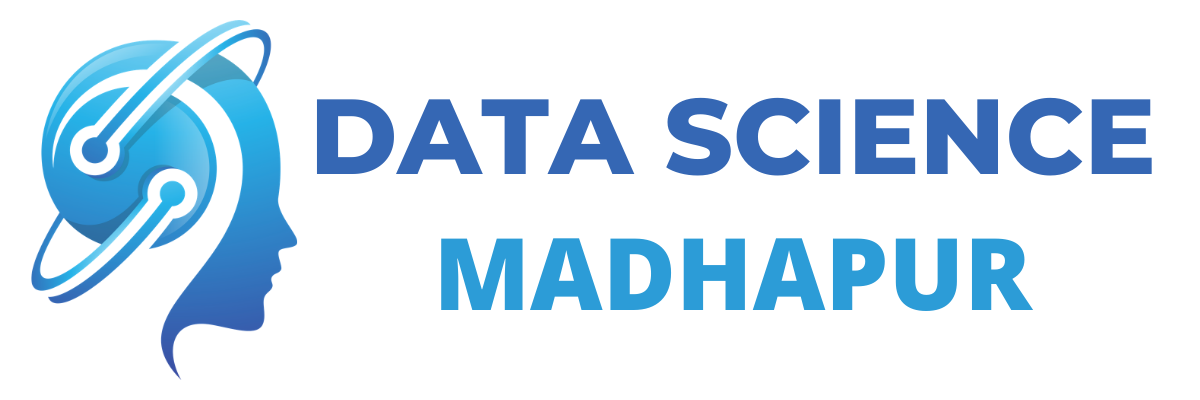Data analysis is generally considered a hard skill rather than a soft skill. Hard skills are specific technical abilities or knowledge that can be learned and measured, and they are typically related to a particular field or domain. Data analysis involves collecting, cleaning, interpreting, and visualizing data to extract meaningful insights and make informed decisions.
To become a data analyst, one needs to acquire a solid understanding of statistical analysis, data manipulation, data visualization, and various data analysis tools such as programming languages (e.g., Python or R) and software (e.g., Excel, Tableau, or SQL). These technical skills require practice and proficiency in working with data, conducting statistical analysis, and applying various data analysis techniques.
However, it’s worth noting that alongside technical skills, data analysts also need to possess certain soft skills to excel in their role. These soft skills may include critical thinking, problem-solving, communication, and the ability to translate complex data findings into actionable insights for non-technical stakeholders. While these soft skills are essential for effective data analysis, they are often complemented by the hard skills mentioned earlier.
Data analysis is primarily considered a hard skill, but a successful data analyst also needs to possess a combination of soft skills to effectively communicate and apply their analytical findings.
To further elaborate on the importance of soft skills for data analysts:
Learn the core concepts of Data Analytics Course video on Youtube:
Communication
: Data analysts often need to collaborate with various stakeholders, including non-technical individuals, managers, or clients. Effective communication skills are crucial to explain complex technical concepts in a clear and understandable manner. Being able to present findings, insights, and recommendations in a concise and compelling way is vital for influencing decision-making processes.Problem-Solving
: Data analysts encounter diverse challenges when dealing with data. They need strong problem-solving skills to identify patterns, detect anomalies, and develop innovative approaches to extract valuable insights. This involves the ability to break down complex problems, analyze potential solutions, and evaluate the most appropriate course of action.Critical Thinking
: Data analysts must possess critical thinking skills to evaluate the quality and reliability of data sources, identify biases or errors, and make sound judgments based on evidence. They need to question assumptions, consider alternative explanations, and ensure their analyses are robust and accurate.Adaptability
: The field of data analysis is constantly evolving, with new tools, techniques, and technologies emerging regularly. Data analysts need to be adaptable and open to learning new skills to keep up with these changes. They should be willing to explore and embrace new technologies, programming languages, or statistical methods to enhance their analytical capabilities.Domain Knowledge
: While domain knowledge is often considered a hard skill, it can also be seen as a combination of both hard and soft skills. Understanding the context and nuances of the industry or domain in which the data analysis is being conducted can significantly impact the quality and relevance of the insights generated. Data analysts should strive to develop a deep understanding of the business or sector they work in, allowing them to ask the right questions and provide meaningful insights.Attention to Detail
: Data analysis involves working with large datasets and conducting intricate analyses. Having a keen eye for detail is crucial to ensure accuracy in data collection, cleaning, and analysis. Data analysts must pay attention to small discrepancies or anomalies that could affect the integrity of their findings.Curiosity and Continuous Learning
: Successful data analysts possess a natural curiosity and a passion for exploring data. They are motivated to dig deeper, ask probing questions, and uncover hidden insights. Being open to continuous learning is also important, as it enables data analysts to stay updated with the latest trends, tools, and techniques in the field.Time Management and Organization
: Data analysts often work on multiple projects simultaneously and need to meet deadlines. Strong time management and organizational skills help them prioritize tasks, allocate resources efficiently, and deliver results within the given time frames. Being able to manage their workload effectively ensures that they can handle the complexities of data analysis projects.Ethical and Responsible Data Handling
: Data analysts deal with sensitive and confidential information. They must adhere to ethical guidelines and ensure the responsible handling of data, including maintaining data privacy, security, and confidentiality. Upholding high ethical standards is essential in building trust with stakeholders and safeguarding the integrity of data analysis processes.Collaboration and Teamwork
: Data analysis is rarely a solitary endeavor. Data analysts often work as part of a team, collaborating with colleagues from different disciplines, such as data scientists, business analysts, or software engineers. Being able to work effectively in a team, share insights, and contribute to collaborative problem-solving is crucial for achieving the best outcomes.Creativity
: While data analysis is often associated with numbers and logic, creativity plays a significant role in generating innovative approaches to data exploration and problem-solving. Thinking outside the box can help data analysts discover new patterns, relationships, or insights that may not be immediately apparent.Empathy
: Data analysts work with stakeholders who may have different levels of data literacy and diverse backgrounds. Having empathy allows data analysts to understand the needs and perspectives of others, tailor their communication style accordingly, and present data in a way that resonates with the audience. Empathy helps bridge the gap between technical expertise and the understanding of non-technical stakeholders.Storytelling
: Data analysts need to be effective storytellers to convey the insights derived from data. By crafting compelling narratives, they can engage stakeholders, convey complex findings in a digestible manner, and influence decision-making processes. The ability to weave data-driven stories helps in making the data more relatable and impactful.Resilience
: Data analysis can be challenging, requiring perseverance in the face of complex problems or unexpected hurdles. Resilience allows data analysts to bounce back from setbacks, learn from failures, and persist in finding solutions. It helps them maintain a positive mindset and adapt to changing circumstances.Business Acumen
: Understanding the broader business context in which data analysis takes place is essential for data analysts. Developing business acumen enables them to align their analysis with organizational goals, identify areas of opportunity or risk, and provide insights that are relevant and valuable to the business decision-making process.Data Science Placement Success Story
Data Science Training Institutes in Other Locations
Tirunelveli, Kothrud, Ahmedabad, Hebbal, Chengalpattu, Borivali, Udaipur, Trichur, Tiruchchirappalli, Srinagar, Ludhiana, Shimoga, Shimla, Siliguri, Rourkela, Roorkee, Pondicherry, Rajkot, Ranchi, Rohtak, Pimpri, Moradabad, Mohali, Meerut, Madurai, Kolhapur, Khammam, Jodhpur, Jamshedpur, Jammu, Jalandhar, Jabalpur, Gandhinagar, Ghaziabad, Gorakhpur, Gwalior, Ernakulam, Erode, Durgapur, Dombivli, Dehradun, Cochin, Bhubaneswar, Bhopal, Anantapur, Anand, Amritsar, Agra , Kharadi, Calicut, Yelahanka, Salem, Thane, Andhra Pradesh, Greater Warangal, Kompally, Mumbai, Anna Nagar, ECIL, Guduvanchery, Kalaburagi, Porur, Chromepet, Kochi, Kolkata, Indore, Navi Mumbai, Raipur, Coimbatore, Bhilai, Dilsukhnagar, Thoraipakkam, Uppal, Vijayawada, Vizag, Gurgaon, Bangalore, Surat, Kanpur, Chennai, Aurangabad, Hoodi,Noida, Trichy, Mangalore, Mysore, Delhi NCR, Chandigarh, Guwahati, Guntur, Varanasi, Faridabad, Thiruvananthapuram, Nashik, Patna, Lucknow, Nagpur, Vadodara, Jaipur, Hyderabad, Pune, Kalyan.
Data Analyst Courses In Other Locations
Tirunelveli, Kothrud, Ahmedabad, Chengalpattu, Borivali, Udaipur, Trichur, Tiruchchirappalli, Srinagar, Ludhiana, Shimoga, Shimla, Siliguri, Rourkela, Roorkee, Pondicherry, Rohtak, Ranchi, Rajkot, Pimpri, Moradabad, Mohali, Meerut, Madurai, Kolhapur, Khammam, Jodhpur, Jamshedpur, Jammu, Jalandhar, Jabalpur, Gwalior, Gorakhpur, Ghaziabad, Gandhinagar, Erode, Ernakulam, Durgapur, Dombivli, Dehradun, Bhubaneswar, Cochin, Bhopal, Anantapur, Anand, Amritsar, Agra, Kharadi, Calicut, Yelahanka, Salem, Thane, Andhra Pradesh, Warangal, Kompally, Mumbai, Anna Nagar, Dilsukhnagar, ECIL, Chromepet, Thoraipakkam, Uppal, Bhilai, Guduvanchery, Indore, Kalaburagi, Kochi, Navi Mumbai, Porur, Raipur, Vijayawada, Vizag, Surat, Kanpur, Aurangabad, Trichy, Mangalore, Mysore, Chandigarh, Guwahati, Guntur, Varanasi, Faridabad, Thiruvananthapuram, Nashik, Patna, Lucknow, Nagpur, Vadodara, Jaipur, Hyderabad, Pune, Kalyan, Delhi, Kolkata, Noida, Chennai, Bangalore, Gurgaon, Coimbatore.
Address:
360DigiTMG – Data Analytics, Data Science Course Training Hyderabad
2-56/2/19, 3rd floor,, Vijaya towers, near Meridian school,, Ayyappa Society Rd, Madhapur,, Hyderabad, Telangana 500081
Contact Number: +91-9989994319/1800-212-654321

